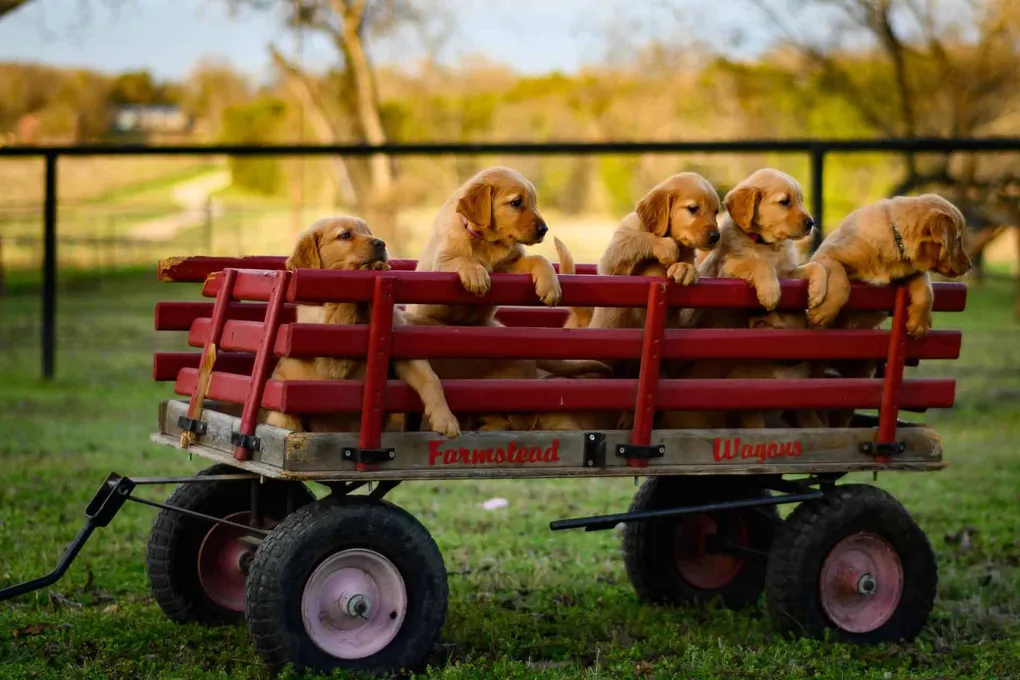
Congratulations on getting a new puppy! Now, it’s time to learn how to bring them up into well-behaved pups! The first step to achieving this is by enrolling them in puppy socialization classes.
Puppyhood is a critical developmental stage. During this period, puppies are highly receptive to learning, making it the perfect time to acquaint them with their environment and social situations.
Puppies are naturally curious and energetic. As a responsible pet parent, it is your role to ensure that your puppy is well-socialized as he grows. Puppy socialization classes can make this process easier.
Whether you’re a first-time puppy parent or have had canine companions in the past, understanding the significance of socialization and how it positively shapes your puppy’s behavior and overall well-being is invaluable.
In this blog post, we will explore the importance of puppy socialization and how to socialize your pups.
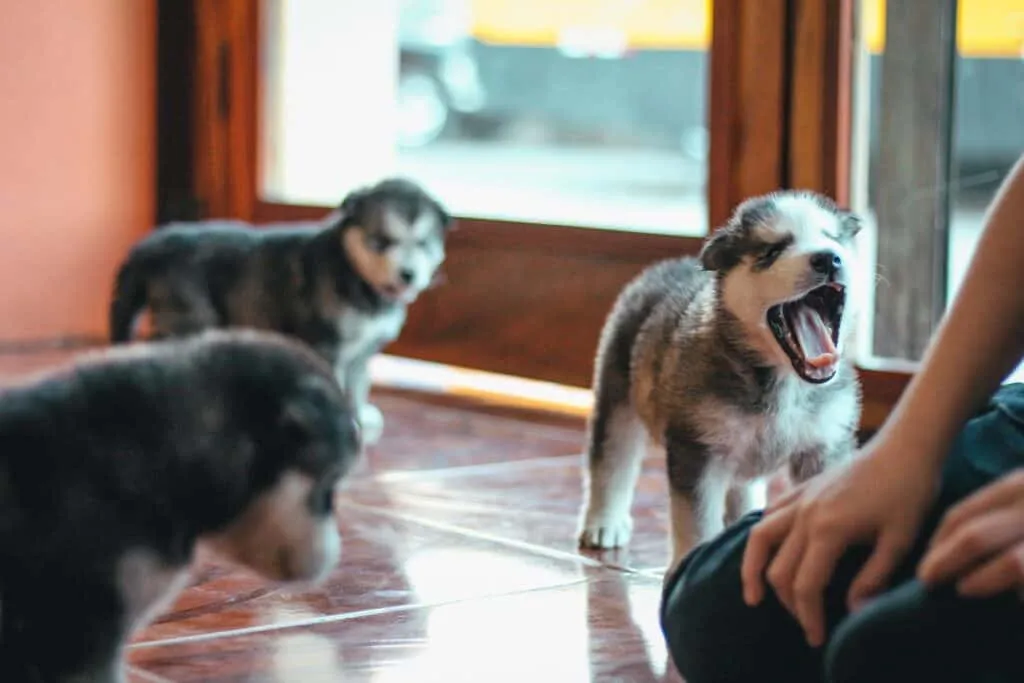
What Are Puppy Socialization Classes?
Puppy socialization classes are classes for puppies as an introduction to their social environment and learning social behavior. These classes are a great way to introduce your pup to the world around them. It is a way of acclimatizing your puppy to his future environment.
In these classes, through exposure to the environment, puppies learn how to interact positively with others. They learn how to greet and play with other dogs and people in a respectful manner.
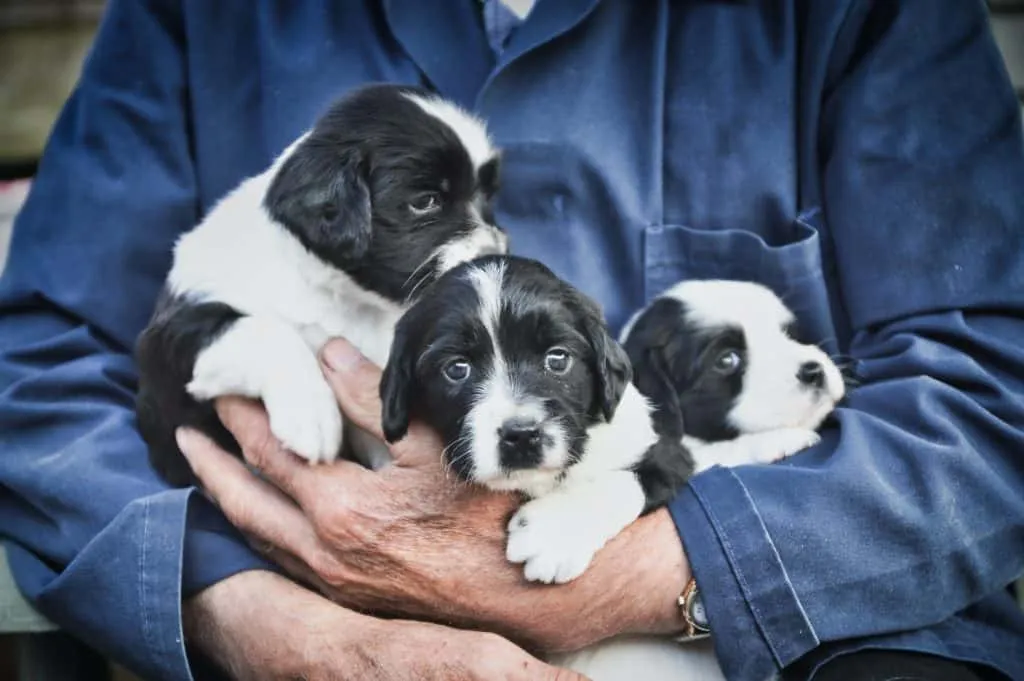
In some of these classes, puppies also learn basic dog commands like sit, stay, come, and others. This helps puppies understand what behavior is acceptable and what is not.
Letting your puppy experience a socialization class is beneficial to ensure that your puppy grows up well-behaved, confident, and happy.
When Should You Start Socializing Your Puppy?
Socialization is an important part of a puppy’s development. It helps them become better adjusted to their environment. Enrolling in a puppy socialization class would provide your pup with positive experiences that will help shape future behaviors. So, the moment you bring your puppy home, it is time to start socializing them.
When puppies are between 1-4 months of age, they are more receptive to learning. It is at this age that our puppies easily learn habits and traits that they will practice throughout their lives. It would be the best time to start socializing your pups.
During early socialization, make sure to introduce them to different environments, people, and situations. They will start to understand the things happening around them and will learn how to react.
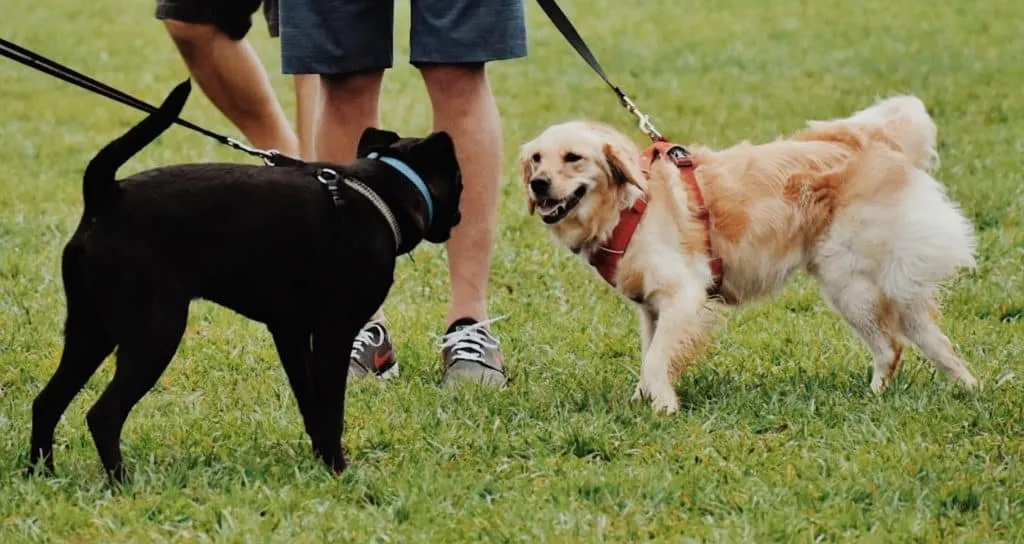
What Would Your Puppy Learn in Socialization Classes?
During the socialization period, your puppy would learn basic dog obedience training. Your pet will be introduced to basic dog commands such as sit, stay, down, and no. Your furry pet will also be taught to answer a call and understand some basic hand signals.
Also, in advanced socialization classes, some behavioral issues of your puppy are addressed. Examples of these behavioral issues are excessive barking, biting, digging, licking, and more. Your dog will also be taught some social behaviors like walking on a leash, stop jumping on people, and others.
At the socialization time, you, as a pet owner, will know how to take charge of and communicate with your puppy. You will learn to develop confidence in handling your pet and create a better relationship with him.
Professional Socialization Classes
While you may handle these socialization classes yourself, there might be a time when you would be busy or not available to do things regularly.
Hence, there are professional puppy and dog trainers who can handle your puppy’s socialization learnings for a cost. The cost of dog training varies from place to place and sometimes on a case-to-case basis.
However, there are still some local pet stores that offer free socialization classes for puppies.
One of these is the Dog Days of Buffalo which offers free puppy socialization classes every Wednesday between 6:30-7:30 pm in Amherst Street, Buffalo, NY.
Likewise, Paradigm Dog School has free Puppy Socials where your puppy gets to socialize with other puppies every Monday, 5:30-6:00 pm, in Grand Haven, MI.
On the other hand, if you are planning to teach your puppy these socialization lessons by yourself, you might want to consider looking into books for dog training to help and guide you along the way.
Doing the process correctly would surely give you more confidence in handling your dog.
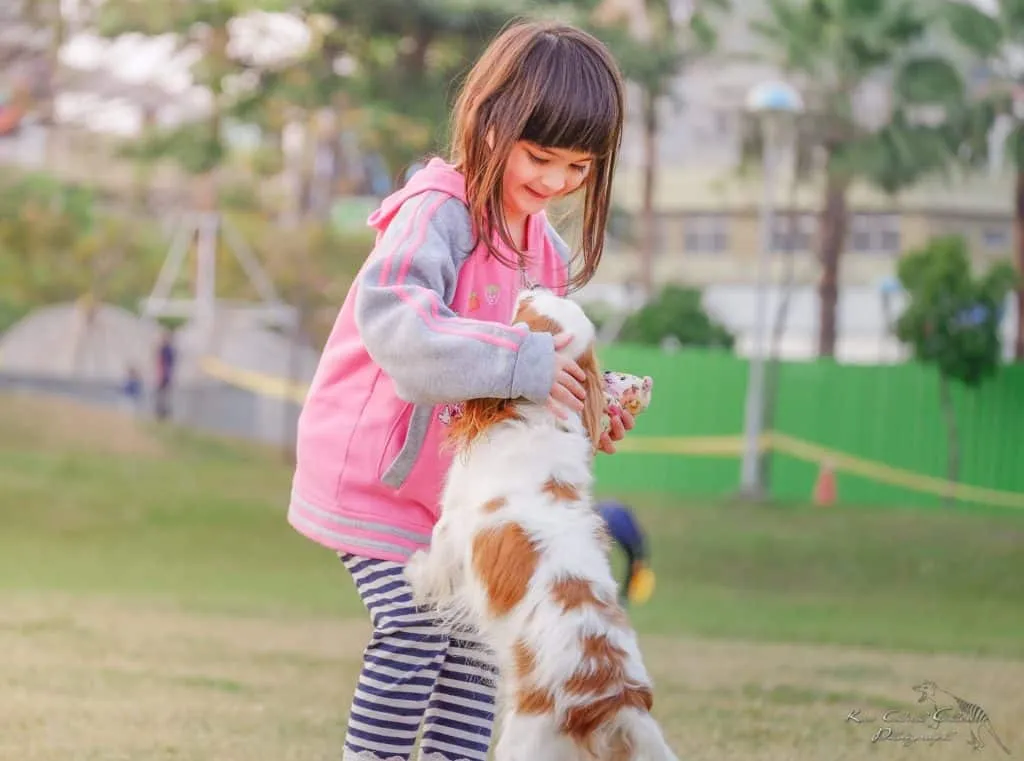
Socializing Your Puppy
Socializing your young pups at an early age is crucial for their overall development and well-being. To ensure success at socialization, here are some key steps that would help you along the way.
Start Early
As early as 3 weeks of age, start socializing your puppy. It is at this part of your dog’s life that they are most receptive to learning and adjusting to new environments.
Go Slow
Proper socialization could not be achieved easily and by hastening the process. Go slow in the first round of exposing your puppy to its environment. In the first few sessions, expose your pup to a controlled environment.
The same week you bring your puppy home, introduce your puppy to family members and other puppies, dogs, or pets if you have them. Slowly transition to moving and introducing your new puppy to his new environment by bringing him outside in the yard to enjoy some puppy play.
New Environment
While bringing your puppy in the yard is the start of his exposure to new environments, it is a different story when it comes to bringing him into public places where you have no control.
Bring your pup to parking lots and get them to enjoy car rides. This will help your puppy get used to different sights, sounds, and smells and will prevent them from developing anxiety in new environments.

Get him exposed to other dogs in a dog park and encourage him to participate in some doggy fun. This will teach your puppy to learn important social skills, such as how to communicate and interact with other dogs.
However, during those first few exposures to these new environments, keeping your pup on a leash would be helpful to avoid dog fights and ensure a positive experience for him.
Importance of Vaccinations
Vaccination is an essential part of a puppy’s health and plays a critical role in preventing the spread of infectious diseases. Exposure to other dogs can foster disease transmission. This can cause more health problems for your dogs and be a cause of concern for dog owners.
In some places, vaccination against certain diseases, such as rabies, parvovirus, and distemper, is mandated by law. This means that your puppy may not be allowed to socialize with other dogs or participate in certain activities without undergoing a specific vaccination series for some diseases.
It is important to ensure your puppy is fully vaccinated before socializing with other dogs or exposing them to new environments. Keep track of your puppies’ vaccination records. And always consult with your veterinarian to determine the appropriate vaccination schedule for your puppy.
Use Positive Reinforcements
Always use positive reinforcements, like toys, treats, and praise, in your dog training. Positive reinforcement eliminates behavioral risks. Improper socialization and harsh training techniques can bolster the development of behavior problems such as excessive barking, chewing, and other negative doggy manners.
As responsible dog owners, never punish your dogs when they are showing signs of behavior problems. Engage them in further training and attend to their needs positively.
Why Socialize Your Puppy
Through socialization, your puppy will grow up to be a well-mannered and confident dog. Your puppy would be socially presentable.
When you have a well-mannered dog, you will not have a hard time when bringing your puppy to public places. You will find it easier to associate your dog with other dogs.
You will have better communication and relationship with your dog. Training your dog for additional tricks will be easier as you communicate better and your dog is already receptive to commands.
Socializing your puppy would not only benefit your puppy. It benefits you too!
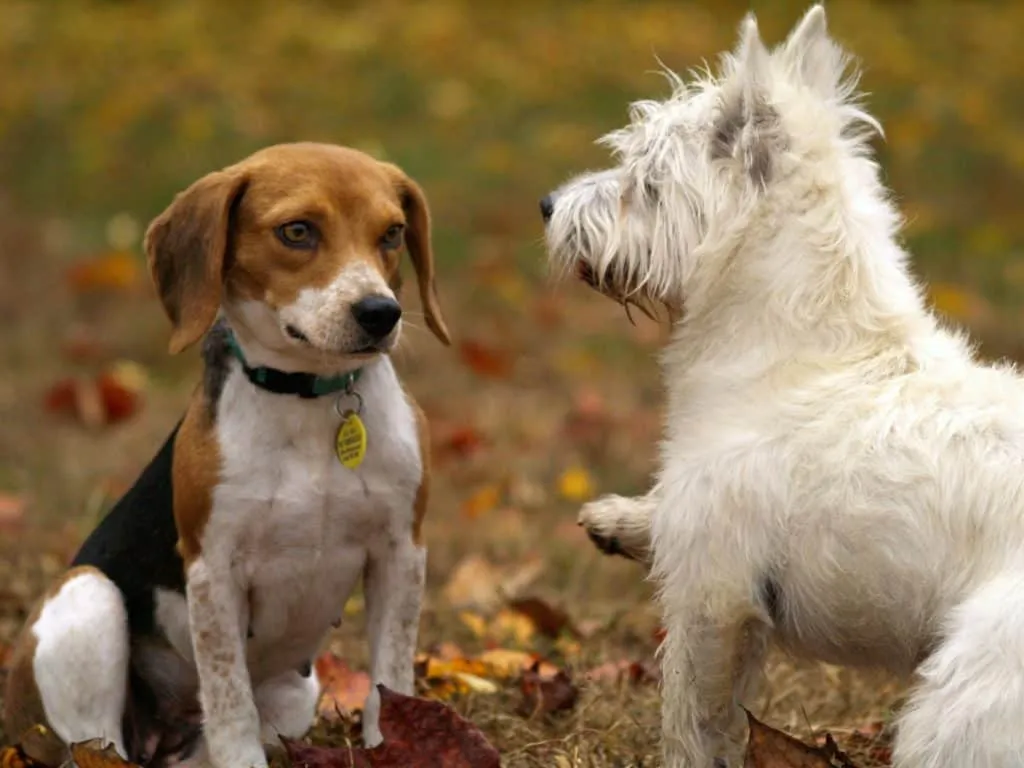
Final Thoughts
Even puppies attending a professional or paid puppy class are brought to dog parks for exposure to other pups and strangers.
Remember, socialization is an ongoing process. It is important to continue exposing your puppy to new experiences throughout their life.
By understanding how important socialization is for your puppies and getting them to have fun in socialization and training classes, you can get well-adjusted and happy adult dogs in no time!